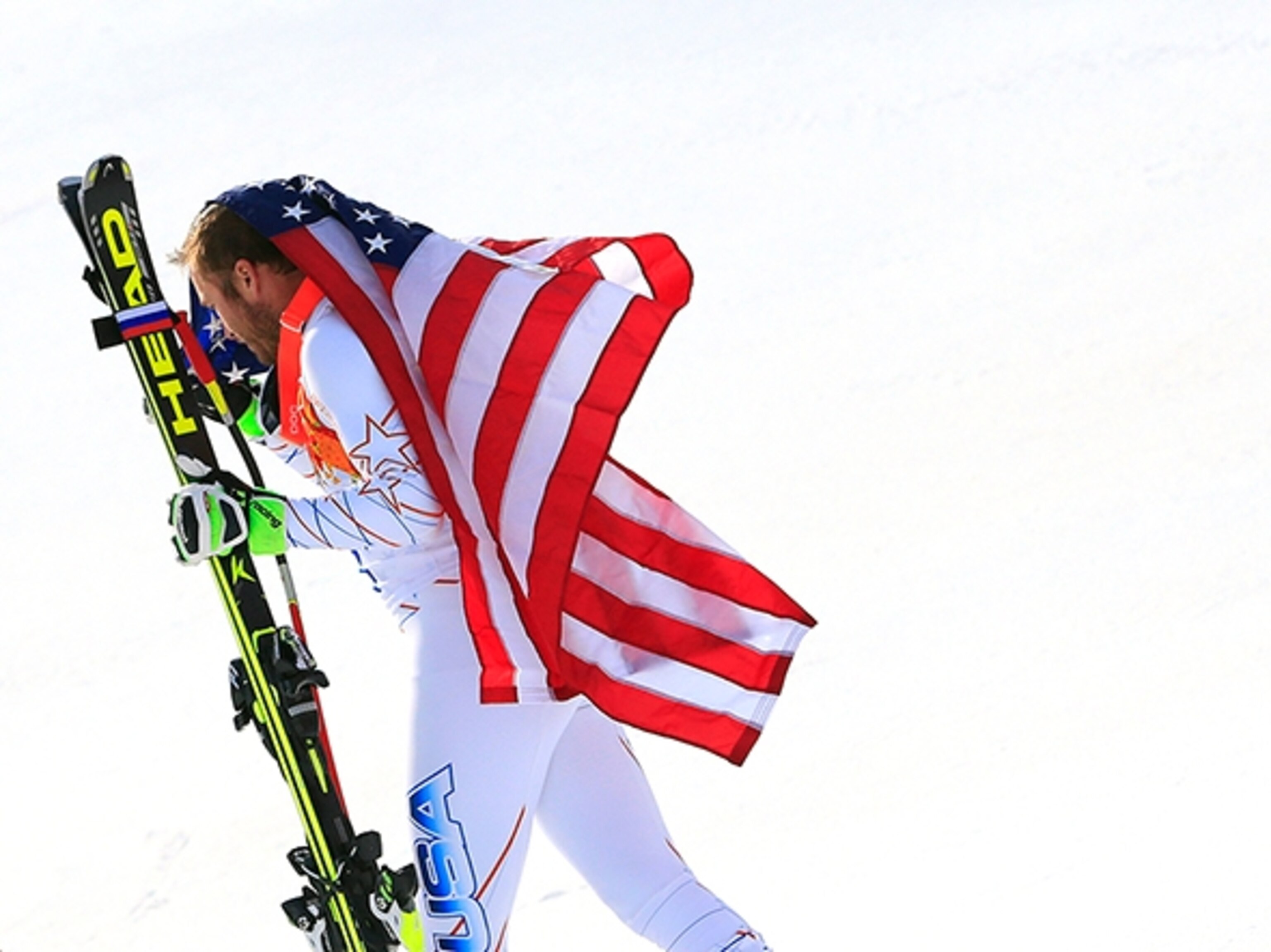
Sochi Olympics: An Ode to Bode
At the top of his final super-g run on Sunday, Bode Miller leaned into a gate and his skis skipped over a depression in the snow. Already low in the turn, Miller’s weight shifted and his right shoulder touched down briefly while his edges chattered to find purchase.
Miller’s skis quickly found what they were clamoring for, and up and over he went into his next turn and down the mountain. It took milliseconds to make and rectify the mistake, milliseconds that left him tied for a bronze medal at day’s end.
Post-race, the focus shifted to Miller’s back-story. Reporter Christin Cooper asked three different ways about how he was feeling, how did his recently-deceased brother Chelone factor into those emotions, what did it all mean. The search for the story then became a story, with Cooper (herself a former Olympic skier) taking heat for pushing too hard and, in turn, tweeting that her producers were forcing her to follow that angle. For his part, Miller acknowledged that his emotions were “very raw” and Cooper was just trying to do her job. As someone who knows a thing or two about pushing hard, that seemed fitting coming from him.
In fact, the whole spectacle seemed fitting in that it didn’t fit at all. And that’s what made it the finest moment of the Sochi Games thus far.
The Olympics have become so much about stories, too much about them even. There are the lengthy montages of athletes back in their hometowns, shot months beforehand, showing their friends and family, the mountains and rinks that reared them, their quirks and superstitions and struggles. We see the golden victors, gleaming and crying, and hear how they never imagined any of this was possible as the cameras zoom in tight. The also-rans get their fifteen minutes through kitsch and perseverance manifesting as mariachi suits or insurmountable odds overcome.
In the middle of all that, clad in a white racing suit that made him almost indistinguishable from the slopes behind him, was Bode Miller. It wasn’t the unyielding Bode Miller of the Salt Lake Olympics, who climbed back up the slalom course to finish a run after missing a gate. It wasn’t the icy, edgy Bode Miller of the Torino Games that skied drunk and rankled everyone when he refused to apologize for it. It wasn’t the magical, multi-medalist Miller we saw in Vancouver at the height of his talent and the peak of his focus.
Sunday, we saw the real Bode Miller, or as near a version as we’ll probably ever get on television. Sure, there were tears from a typically stoic face. There was his beautiful wife Morgan Beck in place of a playboy past. There was a tie for third-place, the oddity of four men on a three-person podium.
But what seemed to mean the most to Bode Miller appeared at the focus’ fringe, was heard away from the camera. It lurked somewhere in his defiance of any tidy narrative about winning gold and going out on top. Not that he wasn’t trying to win, just that he knew he left it all out there and his time probably wouldn’t hold up. He said as much to his wife following his run. He looked intently to the forthcoming skiers. He seemed overwhelmingly happy for his teammates and competitors and, otherwise, he seemed interested in being left alone.
Most of that’s probably natural for a 36-year-old in what will likely be his last Olympics, a softer Bode Miller to match the softer Sochi snow. As the most decorated American alpine skier of all time, he has some nice, round career numbers: six Olympic medals, six individual World Cup event titles, four World Championships in his best events and 33 total victories across all five disciplines. What didn’t fit, and therefore fit so well, was Miller turning away from unfinished answers and the creeping camera to lower his head and be closer to the snow, much as his earlier mistake made him do.
Bode Miller is a complete skier and he is completely a skier. To spend that much of your life on a mountain, at those speeds and under that kind of pressure, you have to be. So, maybe we should stop trying to decipher where the mountain ends and the man begins. We’ve had front-row seats to his 18-year giant slalom run and if we haven’t figured out how to measure him by now, we never will. Instead, maybe he’s best understood alone on the slopes, sending it, with the story told entirely in his turns. That seems to be what the real Bode Miller is about and what he and the Olympics have in common at their core: the love of sport and the competition within it.
We’re lucky that a moment so great and so imperfect should end up bronzed. And we’re lucky we had a chance to see it.